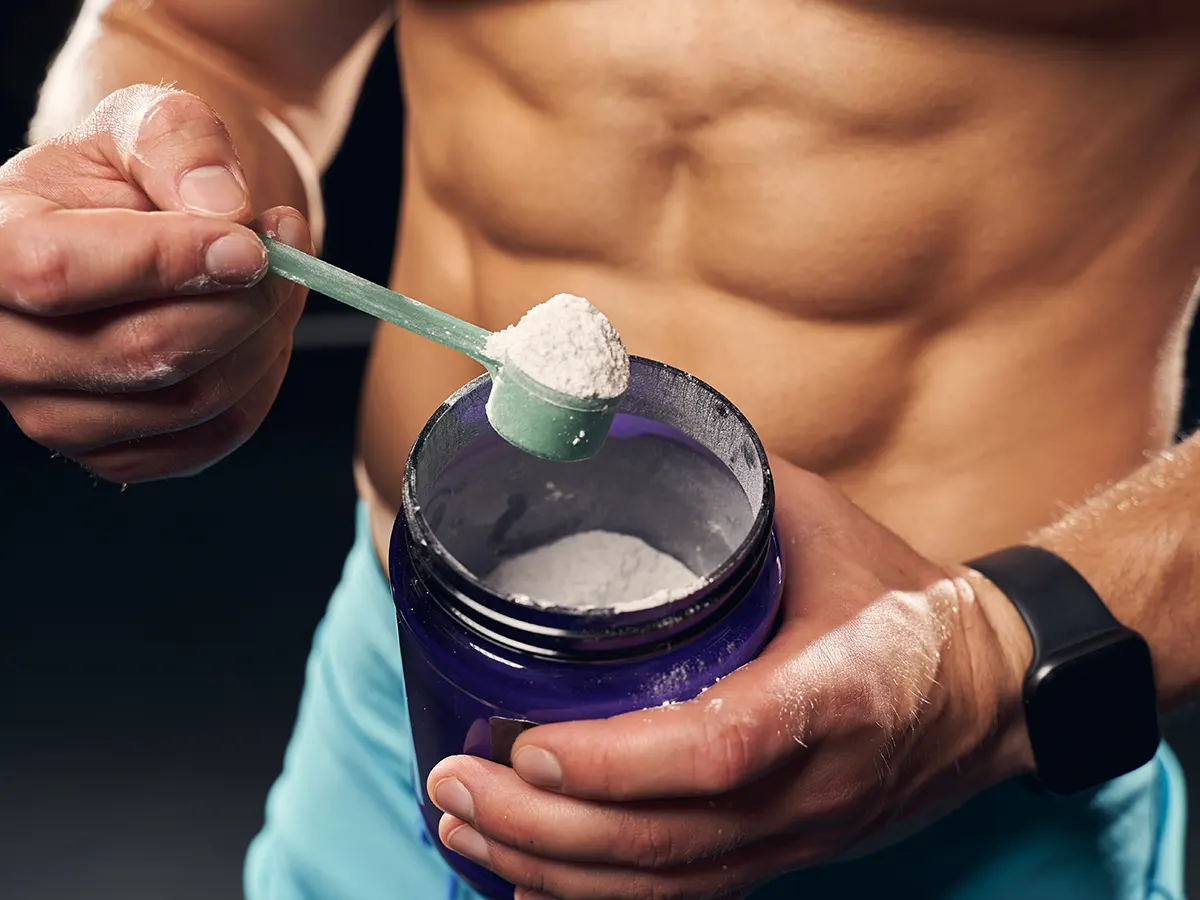Can Creatine Boost Your Workout Performance and Muscle Gains Fast?
Creatine is one of the most popular and well-researched supplements in the fitness world. Known for its muscle-boosting benefits, creatine has become a staple for athletes, bodybuilders, and even those looking to improve general fitness. In this post, we’ll dive deep into what creatine is, how it works, its benefits, types, and how you can use it to achieve your fitness goals.
What is Creatine?
Creatine is a natural compound found in the body, primarily in the muscles. It’s made up of three amino acids: arginine, glycine, and methionine. While the body produces creatine naturally, it’s also found in certain foods like red meat and fish. However, the levels in these foods are often too low to significantly impact muscle growth, which is why many people choose to supplement with creatine to enhance their performance and strength.
How Does Creatine Work?
Creatine increases the body’s stores of phosphocreatine, a molecule that helps generate ATP (adenosine triphosphate), which is the primary energy carrier in our cells. During high-intensity exercise, ATP is used up quickly, and creatine helps replenish it, giving muscles more energy to perform at their peak. This extra energy translates into improved strength, power, and endurance, making it a valuable tool for athletes and fitness enthusiasts.
Benefits of Creatine
- Increased Muscle Mass
Creatine helps muscle cells produce more energy, which can lead to improved muscle growth. Studies have shown that individuals taking creatine experience greater muscle gains compared to those who don’t. - Enhanced Strength and Power
Because creatine helps in the rapid production of ATP, it can significantly improve your strength and power during high-intensity workouts. This is especially beneficial for strength-based activities like weightlifting and sprinting. - Improved Recovery
Creatine may help reduce muscle cell damage and inflammation, which can speed up recovery after intense workouts. Faster recovery allows you to train more consistently and with greater intensity. - Enhanced Brain Function
Creatine is also found in the brain, and studies suggest it can improve cognitive performance, particularly during mentally demanding tasks. This makes it an interesting supplement for both physical and mental performance. - Better Performance in High-Intensity Sports
For athletes involved in sports that require short bursts of power, like basketball, football, and track and field, creatine can improve performance and delay fatigue.
Types of Creatine
With so many types of creatine available, it can be tough to know which one is right for you. Here are the most common forms:
- Creatine Monohydrate
The most popular and widely studied form, creatine monohydrate is effective, affordable, and readily available. Most people find this form provides the best results with minimal side effects. - Creatine HCL (Hydrochloride)
Known for its increased solubility, creatine HCL is a popular alternative to monohydrate. It may cause less bloating and is often used in smaller doses. - Creatine Ethyl Ester
This form is said to be absorbed more easily by the body, but research on its effectiveness is limited. Some people find it to be effective, but creatine monohydrate remains the gold standard. - Buffered Creatine
Buffered creatine is thought to be gentler on the stomach and may reduce side effects like bloating. However, it’s generally more expensive than monohydrate.
How to Use Creatine for Best Results
- Loading Phase (Optional)
Many people begin with a “loading phase” to saturate the muscles with creatine. This involves taking about 20 grams of creatine per day, divided into four servings, for 5–7 days. After the loading phase, users switch to a maintenance dose. - Maintenance Phase
For maintenance, the standard dose is 3–5 grams of creatine per day. This dose is enough to keep creatine stores in your muscles high and is typically taken around workouts or with a meal. - Stay Hydrated
Creatine can cause your muscles to draw in more water, so staying hydrated is essential. Make sure to drink plenty of water throughout the day. - Consistency is Key
For the best results, creatine should be taken consistently. Missing a day here or there won’t drastically affect your results, but regular intake is ideal for long-term benefits.
Are There Any Side Effects?
Creatine is generally considered safe when taken within recommended doses. Some people may experience minor side effects like bloating or digestive discomfort, but these often subside with proper dosing. As always, consult your healthcare provider before starting any new supplement, especially if you have pre-existing conditions.
Frequently Asked Questions
1. Do I need to cycle creatine?
Cycling isn’t necessary for creatine. As long as you’re taking it in recommended doses, you can continue using it indefinitely.
2. Can I take creatine on rest days?
Yes! Taking creatine on rest days helps maintain the creatine levels in your muscles, so it’s beneficial to keep taking it even when you’re not training.
3. Does creatine cause dehydration?
Creatine may increase water retention in your muscles, so it’s essential to stay well-hydrated, but there’s no evidence to suggest it causes dehydration.
Final Thoughts
Creatine is one of the most researched and effective supplements you can take for building muscle, improving strength, and enhancing athletic performance. Whether you’re a seasoned athlete or a beginner looking to boost your fitness, creatine can help take your results to the next level. With the right approach and consistent use, you’ll likely see improved performance, faster recovery, and better overall results in your workouts.
Ready to give it a try? Remember to choose a high-quality creatine product, and always follow recommended dosing guidelines to maximize the benefits of this powerhouse supplement!
